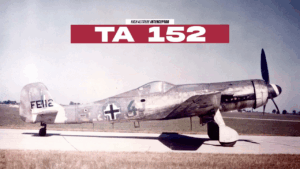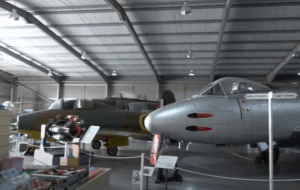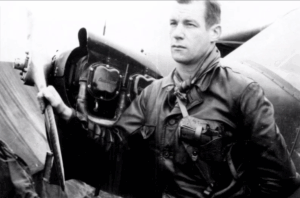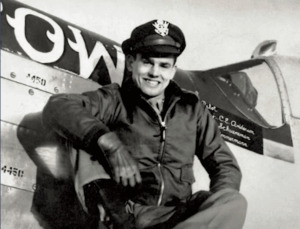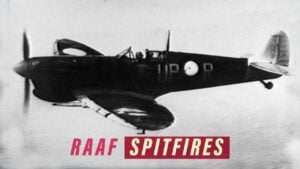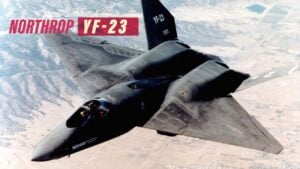The Remarkable Survival Story of an RAF Airman Who Jumped Without a Parachute

Dark Docs / YouTube
On a brisk night in March 1944, a scenario unfolded that would stretch the bounds of believability. Nicholas Alkemade, a British airman, found himself in a harrowing situation aboard a Lancaster bomber. His plane crippled during a WWII mission, Alkemade faced a choice that seemed to guarantee death either way. His decision to jump from the flaming aircraft without a parachute and survive is not just a story of miraculous survival but highlights the unpredictable human spirit facing almost certain demise.
Before the War
Born on December 10, 1922, in North Walsham, Norfolk, Nicholas Alkemade led a simple life as a market gardner in Loughborough before the world was torn apart by war. When conflict broke, he joined the Royal Air Force, driven perhaps by a sense of duty or the allure of adventure. After completing his training, Alkemade was assigned to No. 115 Squadron as a rear gunner, a position that placed him at the back of the Avro Lancaster bomber known as “Werewolf.”

Flight to Berlin
Werewolf and its crew had successfully completed 14 missions when they set off for Berlin on March 24, 1944. The aircraft departed RAF Witchford in Cambridgeshire, equipped and ready, with seven crew members including Alkemade. The mission to Berlin was executed without incident, but the return trip subjected them to unforeseen danger.
The Attack and the Decision
As the group of bombers headed back, they encountered strong northern winds that diverted them over the heavily defended Ruhr region in Germany. It was there that a German Ju 88 night fighter spotted them. The Werewolf suffered heavy machine gun and cannon fire to its starboard side, igniting a fire along its length.
In the chaos, the perspex canopy of Alkemade’s gun turret shattered, exposing him to the freezing airstream. The pilot, James Newman, soon gave the order to bail out. For Alkemade, exiting the aircraft wasn’t simple. The space in the rear turret was too cramped to allow room for both a gunner and his parachute. When Alkemade managed to reach the Lancaster’s rear section to retrieve his parachute, he was greeted by an inferno that made grabbing it impossible. With his clothing on fire and the hydraulic fluid in the turret ignited, his choices were stark.
The Leap and Unexpected Survival
Facing a certain death by burning or crashing, Alkemade chose to jump. He described later how he didn’t feel like he was falling but rather suspended in space. Thinking of home and expecting his life to end within seconds, he experienced a calm acceptance of his fate.
However, death did not come for Nicholas Alkemade. Instead, after losing consciousness during his descent, he awoke three hours later in a snow-covered fir forest. The snow beneath him, 18 inches deep, had been shielded from the sun by the trees, and the branches themselves helped break his fall. Miraculously, aside from a twisted knee, some bruises, and burns, he survived the 18,000-foot fall essentially unharmed.

Rescue and Internment
Unable to walk due to his injuries, Alkemade blew a whistle for help, and soon, German civilians found him and ensured he received medical attention. When the local authorities arrived, they were skeptical of his story. A fallen airman without a parachute was unusual, and they suspected espionage. Alkemade directed them to where they could find his parachute harness, alongside the bomber’s wreckage. This confirmed his incredible tale.
While held as a prisoner of war, Alkemade’s story made him somewhat of a minor celebrity among the troops. His life following the war took him back into civilian routine where he worked at a chemical plant. Despite the ordinary setting, his life remained marked by this extraordinary escape until his death in June 1987.
From an ordinary man doing an ordinary job, Nicholas Alkemade’s war experience highlighted the extreme challenges faced during those turbulent years. His tale continues to be a remarkable account of survival against all odds, demonstrating the resilience and unpredictability of human life amidst the brutal backdrop of war.














